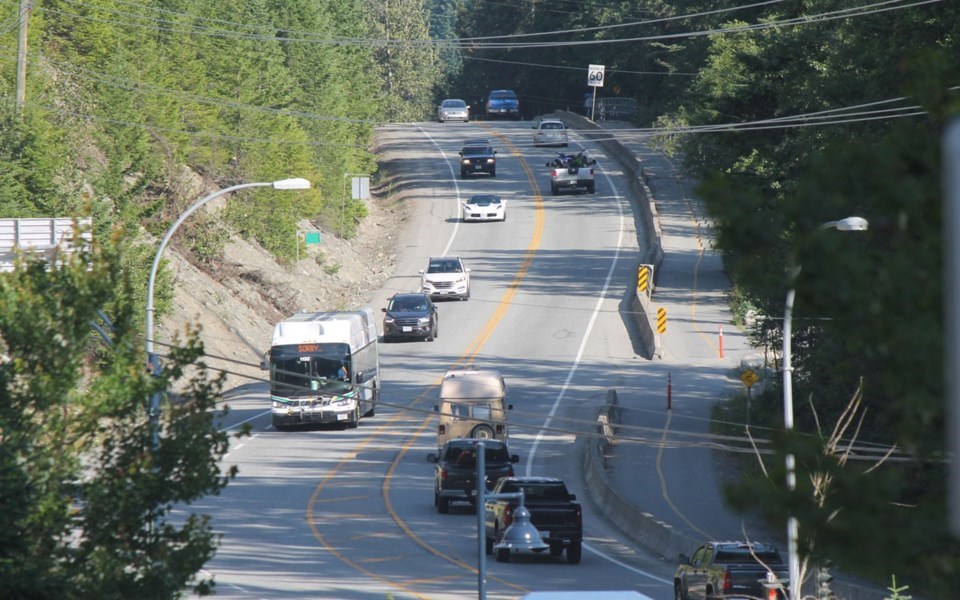This year’s Union of BC Municipalities (UBCM) Convention, held virtually from Sept. 22 to 24, was unique in more ways than one.
There was of course the COVID-19 factor—like so many other 2020 events, the convention went virtual for the first time this year due to the pandemic, with delegates tuning in from their home communities.
But it was news from Premier John Horgan that British Columbians will head to the polls on Oct. 24—on Day 1 of the convention—that really flipped the script.
“One of the most interesting things of this convention is that we had our meetings with ministers the week before UBCM when they were still in government. On the first day of the actual convention they dropped the writ, and those ministers became candidates,” said Whistler Mayor Jack Crompton.
Suddenly, the policy points set to be voted on at the convention—and the priorities discussed, like regional transit and childcare for Whistler—carried an extra layer of uncertainty.
“The conversation about regional transit was positive, but it is very much up in the air awaiting the conclusion of the election,” Crompton said.
“We have made a tremendous amount of progress … [but] the next provincial government will be making the decisions about how transit in B.C. is funded, and how transit in the Sea to Sky corridor is funded.”
It’s an issue that corridor communities have been working on for years (see Pique, July 4, 2019: “Province rejects funding model for regional transit”).
Crompton also sat on a convention panel discussion about the future of transit in the province (along with the CEOs of Translink and BC Transit), making the case that there are lessons to be learned from the aftermath of the 1919 Spanish Flu.
“You would have been perfectly reasonable to assume that on the other side of the Spanish Flu, public infrastructure would be far less effective in its use because they would need so much more space in order to maintain physical distancing, which was a big part of the response,” Crompton said. “In fact, the Roaring Twenties followed the Spanish Flu, and people got back to life as it was very quickly. My encouragement to our membership was to not just respond to the very important public safety challenges we have now, but also to build a public transit service for the future.”
Whistler officials met with a variety of their provincial ministry counterparts during the convention, Crompton added, discussing things such as recovery funding and programs for the tourism sector, grant funding for new workforce housing projects and FireSmart, and shovel-ready projects such as the Geopark, village washrooms, childcare facilities and Valley Trail expansion.
On Sept. 24, Whistler Councillor Jen Ford was acclaimed as UBCM second vice president after serving one year as third vice president.
Ford and the rest of the UBCM executive will now advocate key policy issues on behalf of municipalities with the provincial government.
There are always three big topics the executive focuses on, Ford said: climate change, forestry decisions, and provincial spending on things such as school and healthcare.
“A big one for us for the last several years has been the cannabis revenue sharing … The money that was established was always promised to be cut to the local governments,” she said. “We haven’t seen that yet, and so that’s a big one that we will continue to advocate for.”
While it remains to be seen which party will form government after the Oct. 24 election, Ford said Whistler officials made childcare a point of discussion in their UBCM minister meetings as well.
As for a renewed campaign promise from Premier John Horgan to implement a 10-year, $10-a-day childcare program, “let’s see it happen,” Ford said. “He’s committed to calling this election to make sure that he’s headed in the right direction, to make sure that he hears the voices of the province. The province is saying do it. Let’s do it.”
But while $10-a-day daycare is great, more needs to be done on recruiting, she added.
“We keep banging that drum,” she said.
“We’re losing teachers. They can’t afford to live here, because the wage is low, [so] subsidize the wage.”




